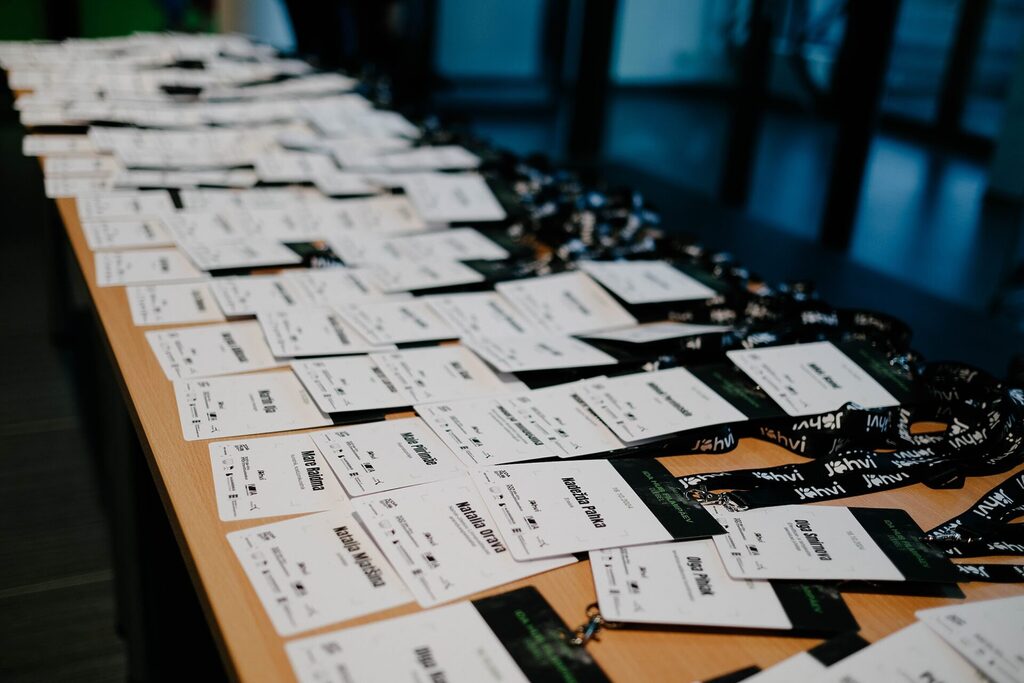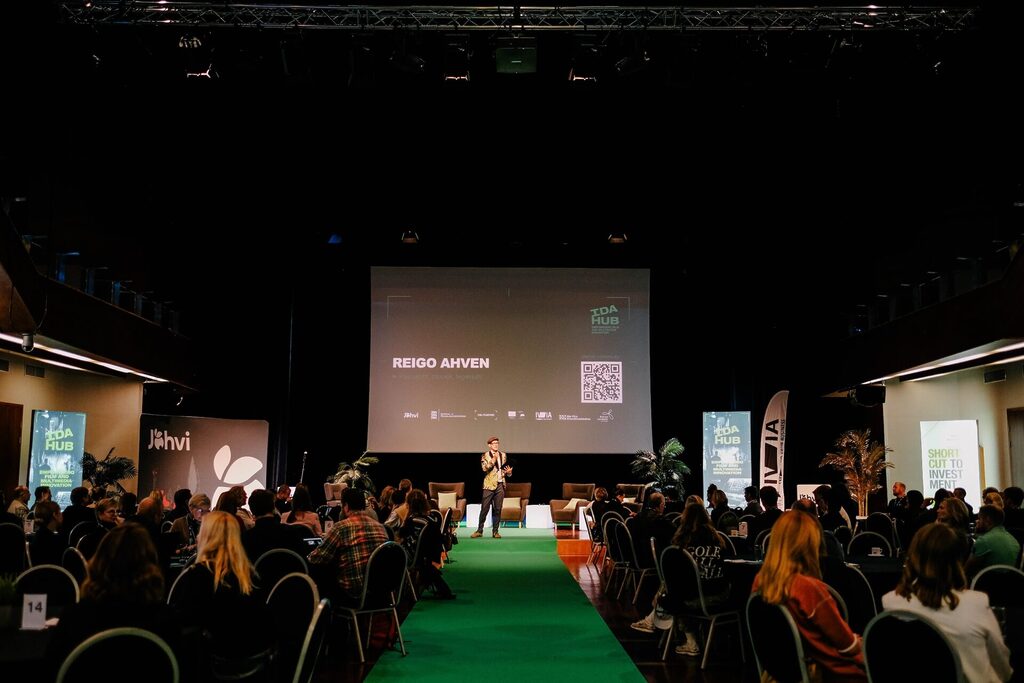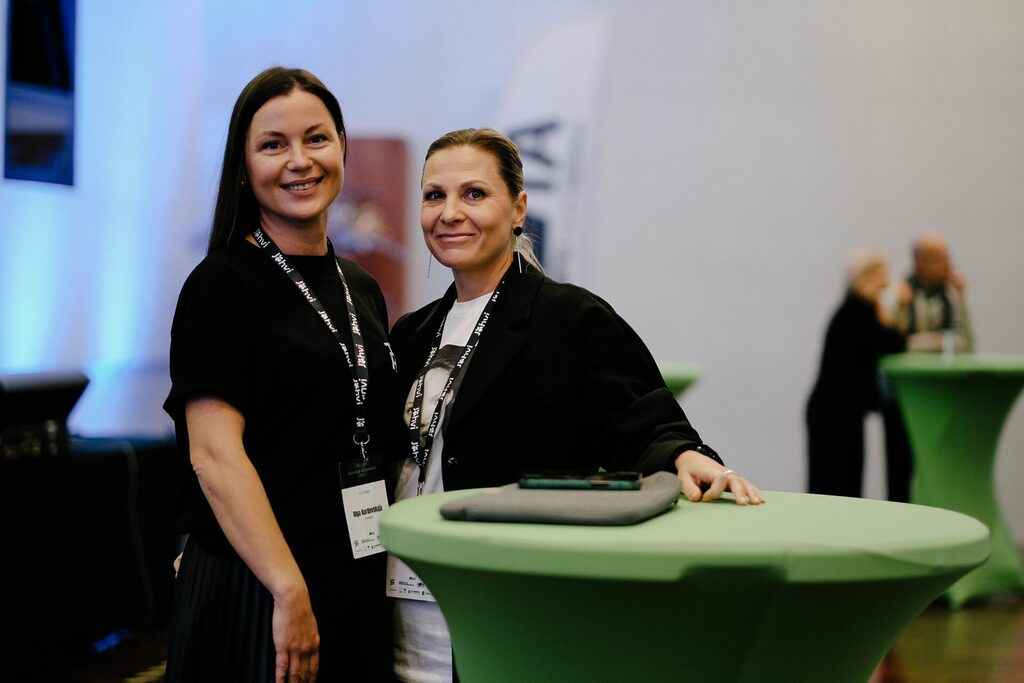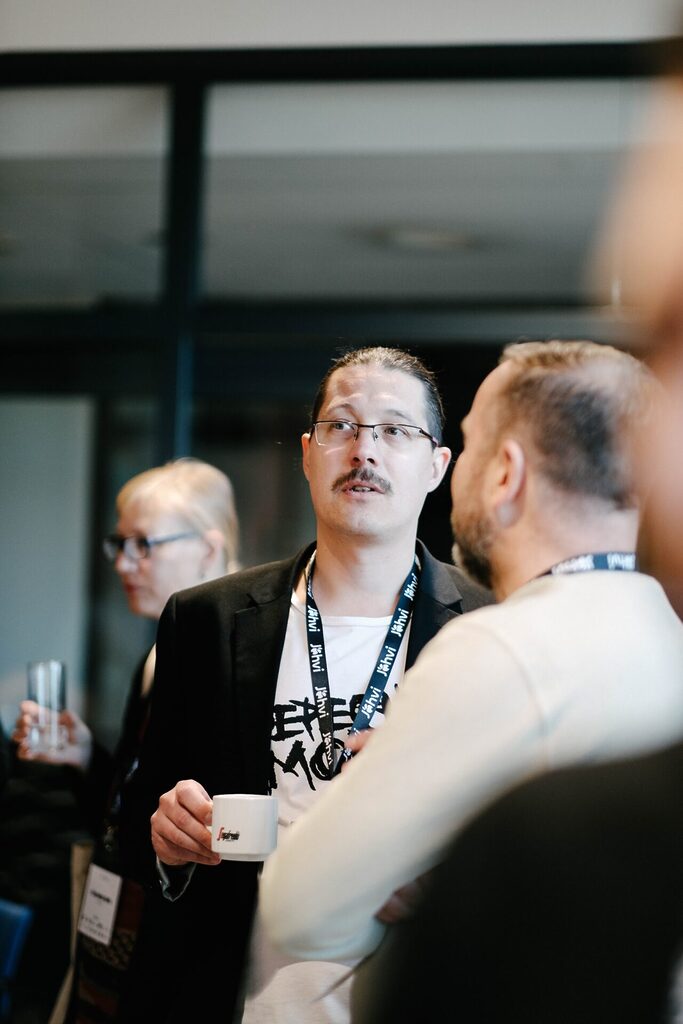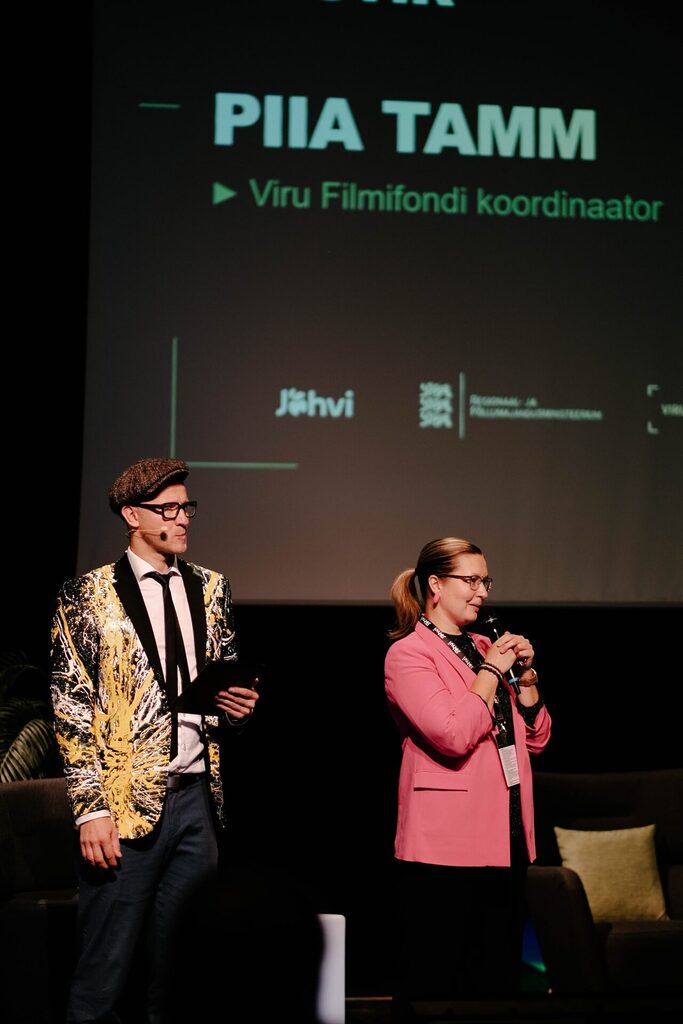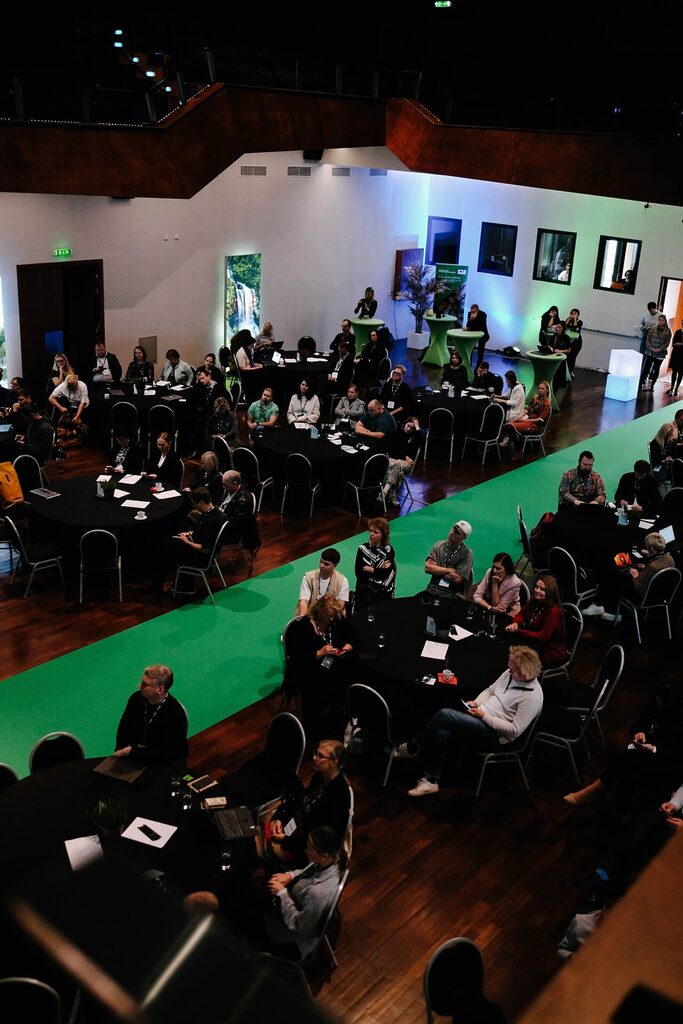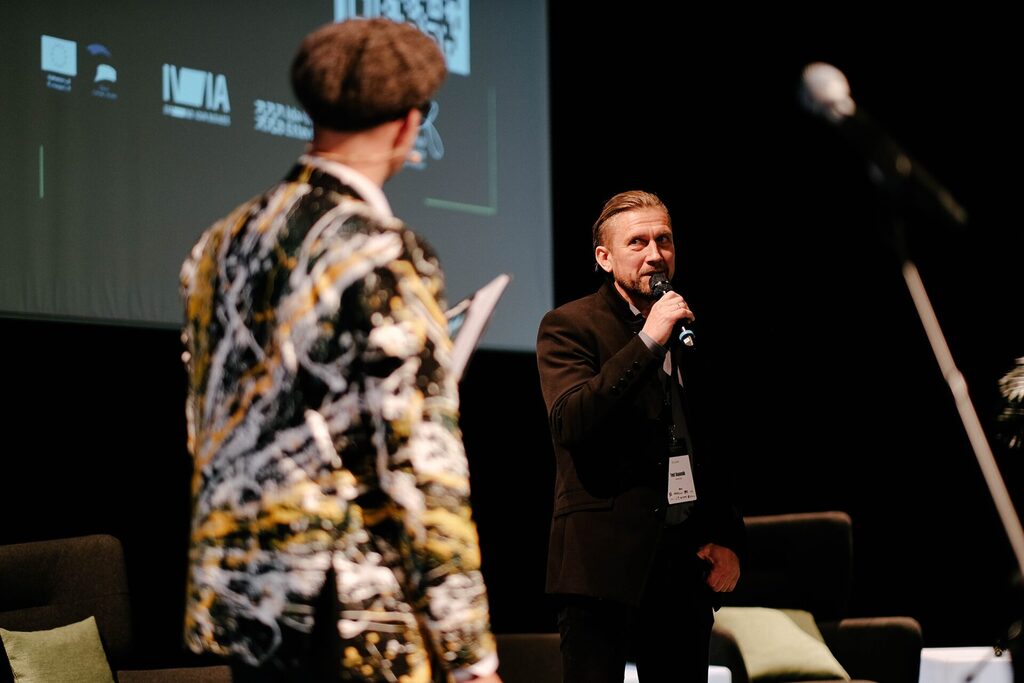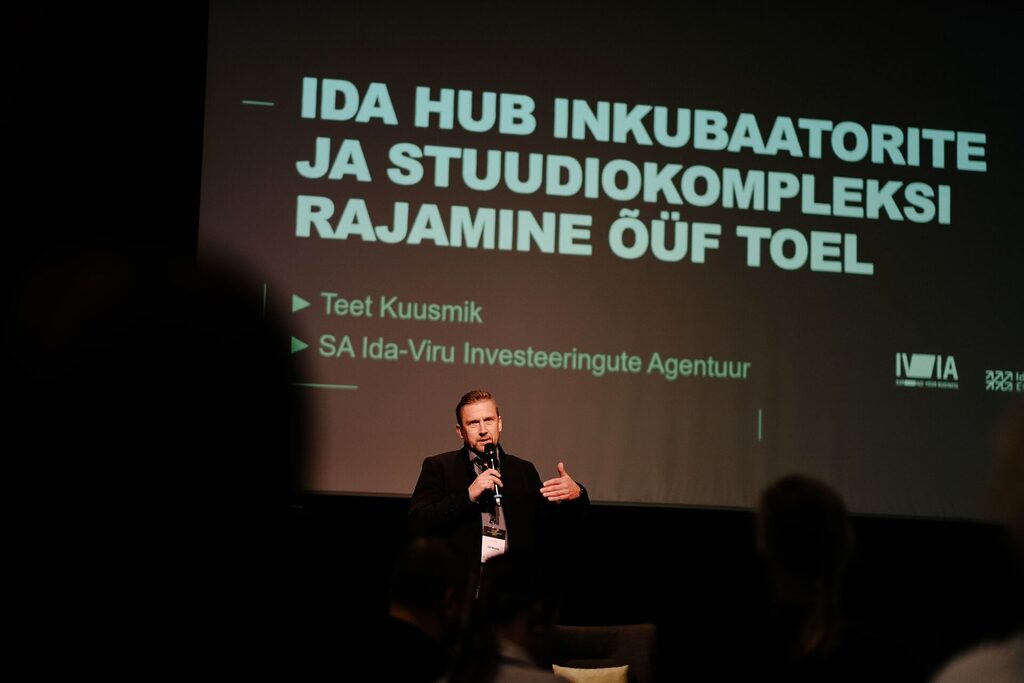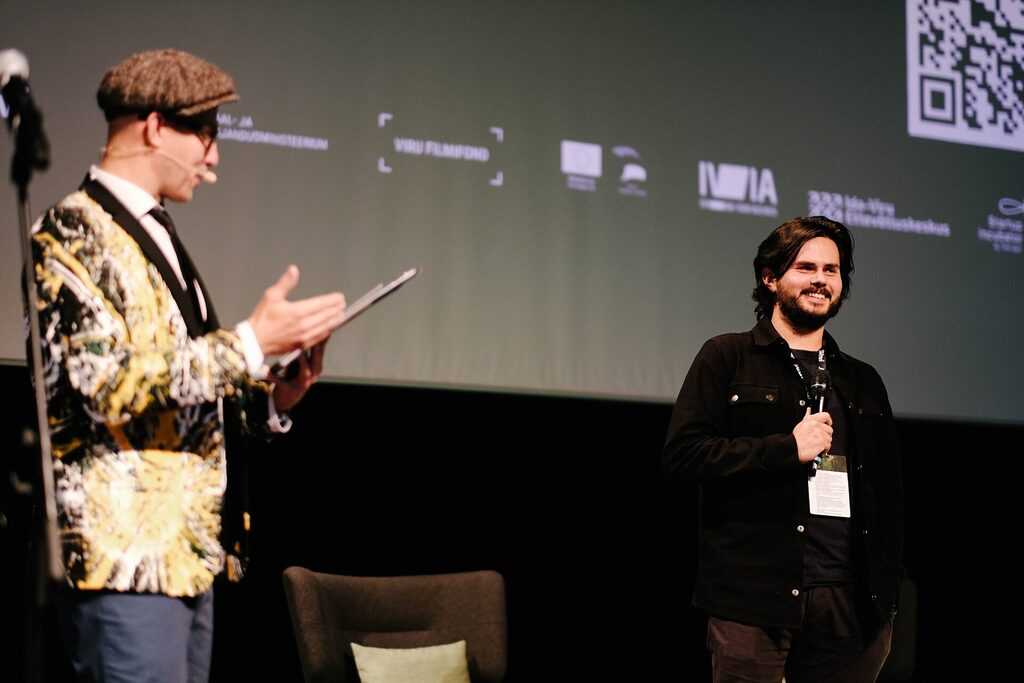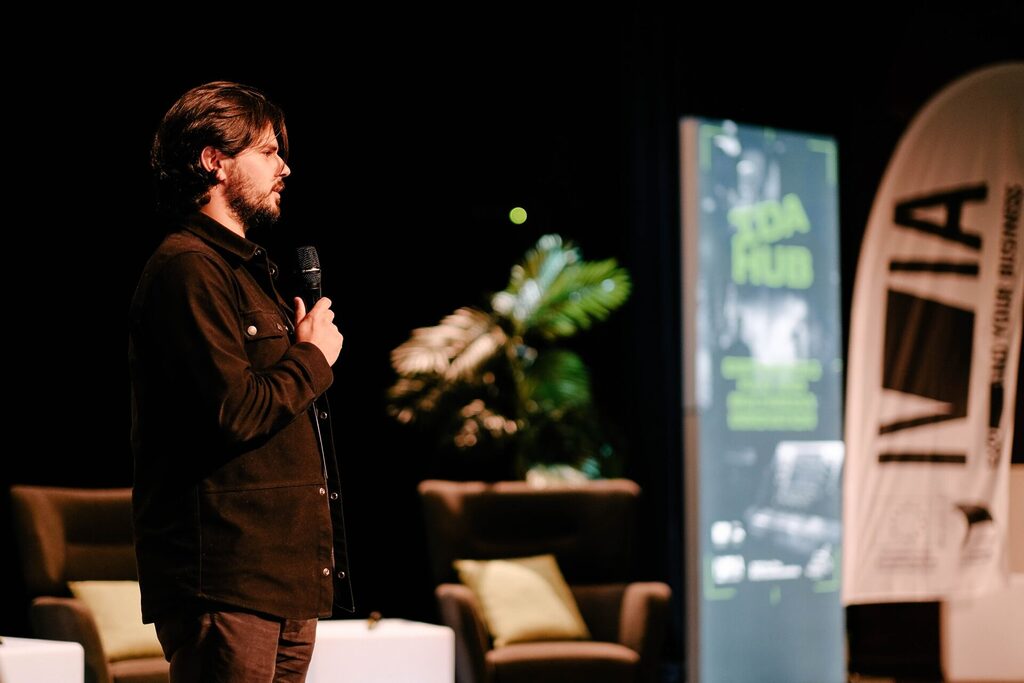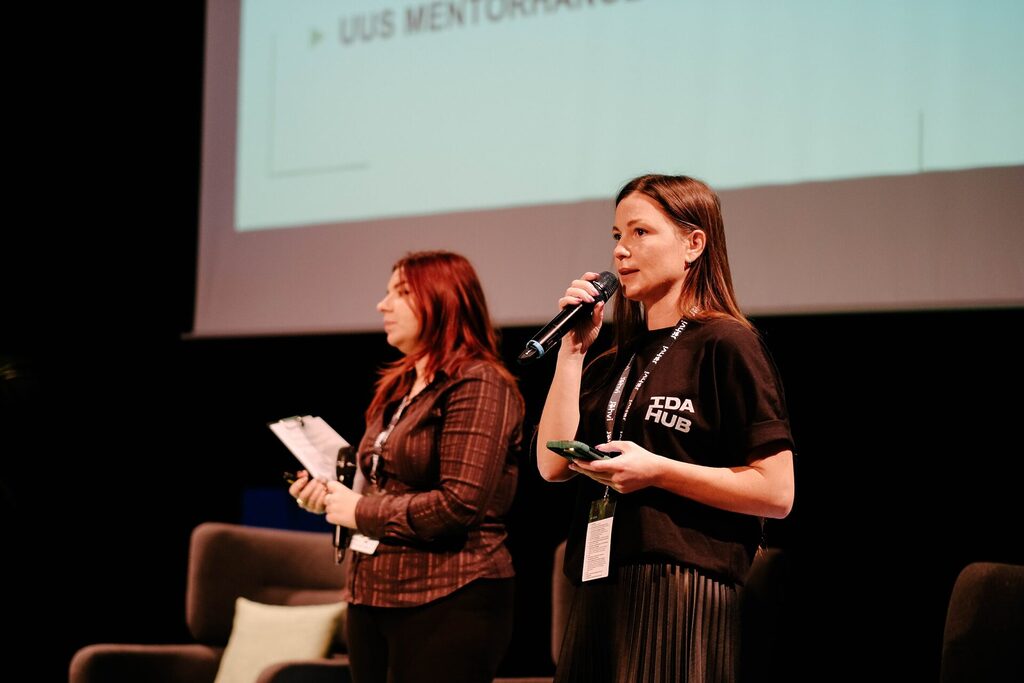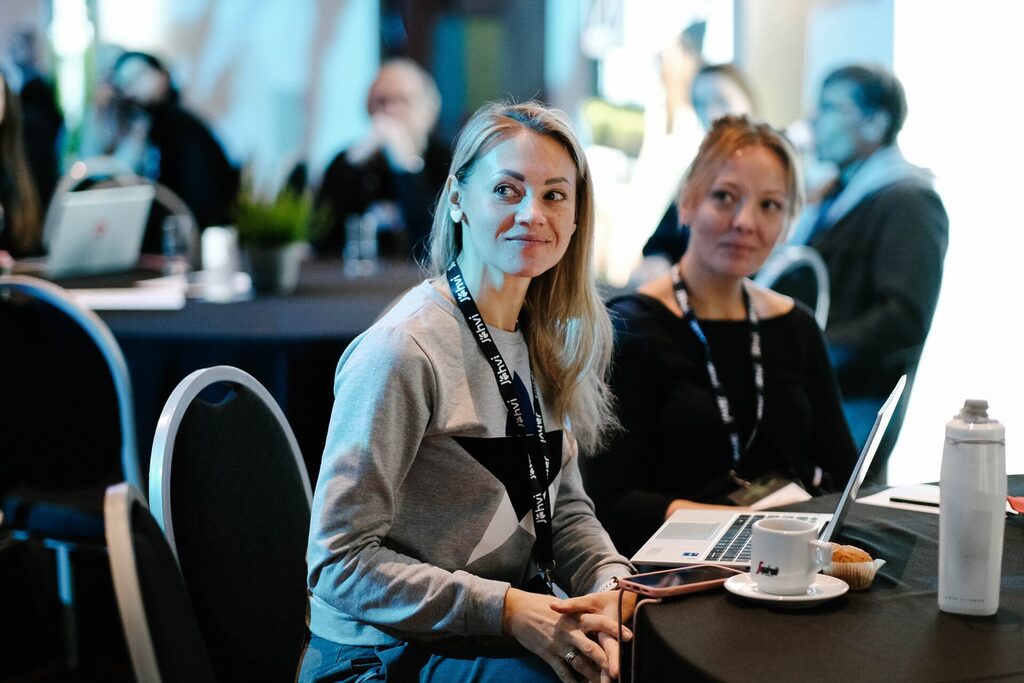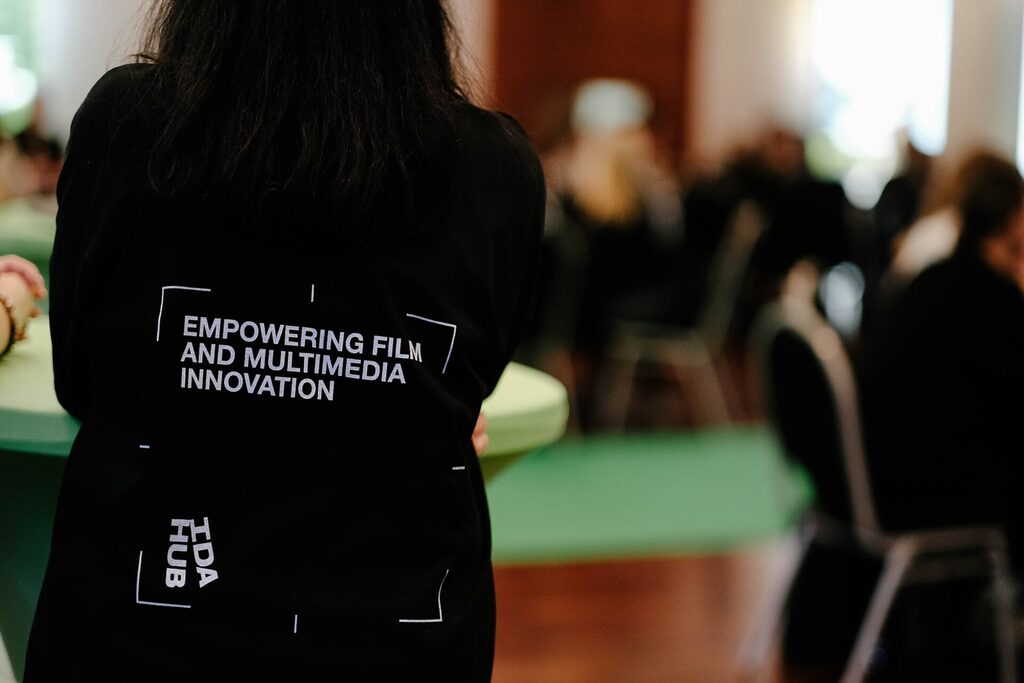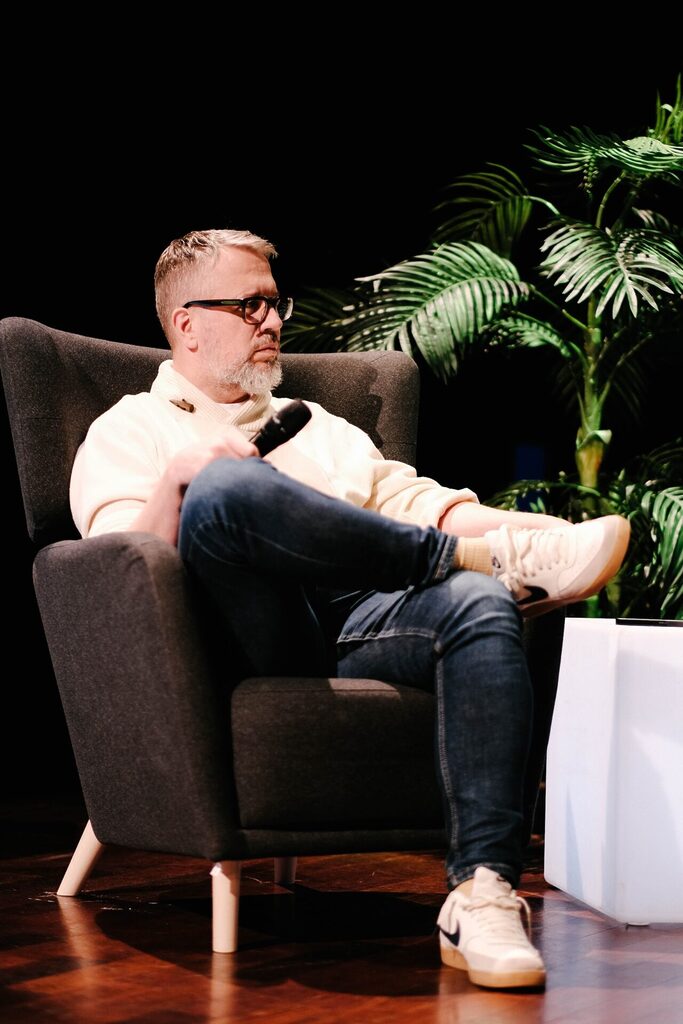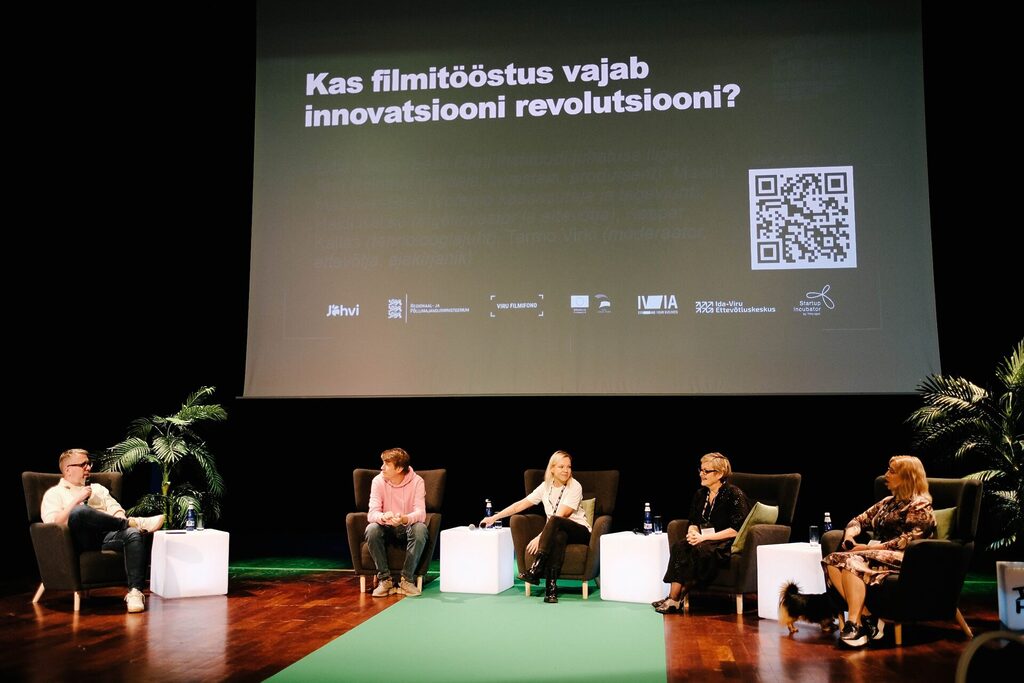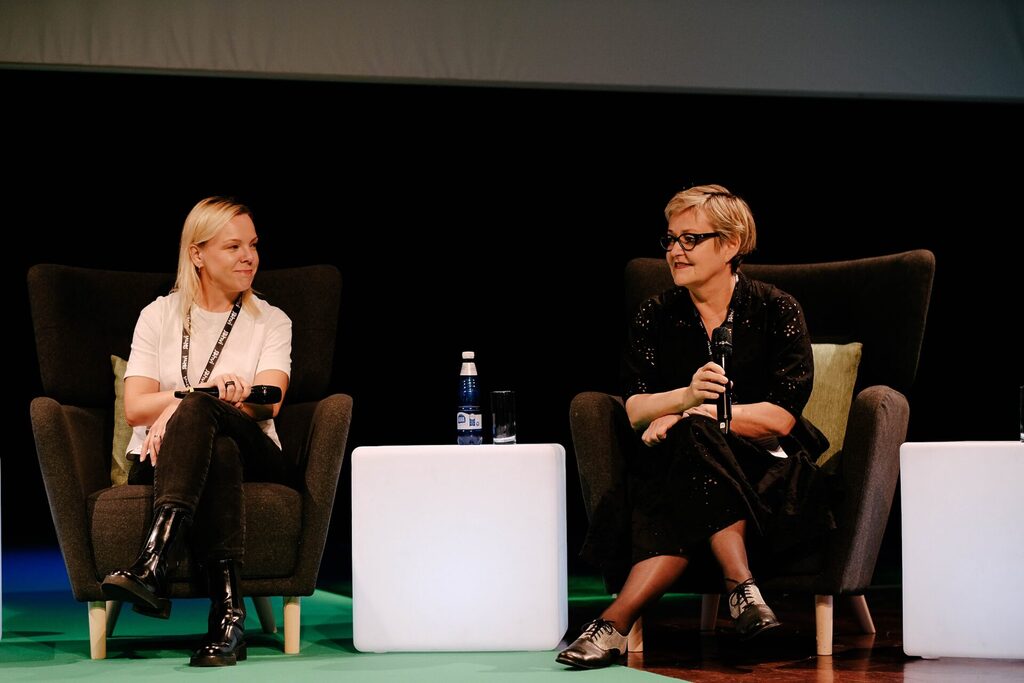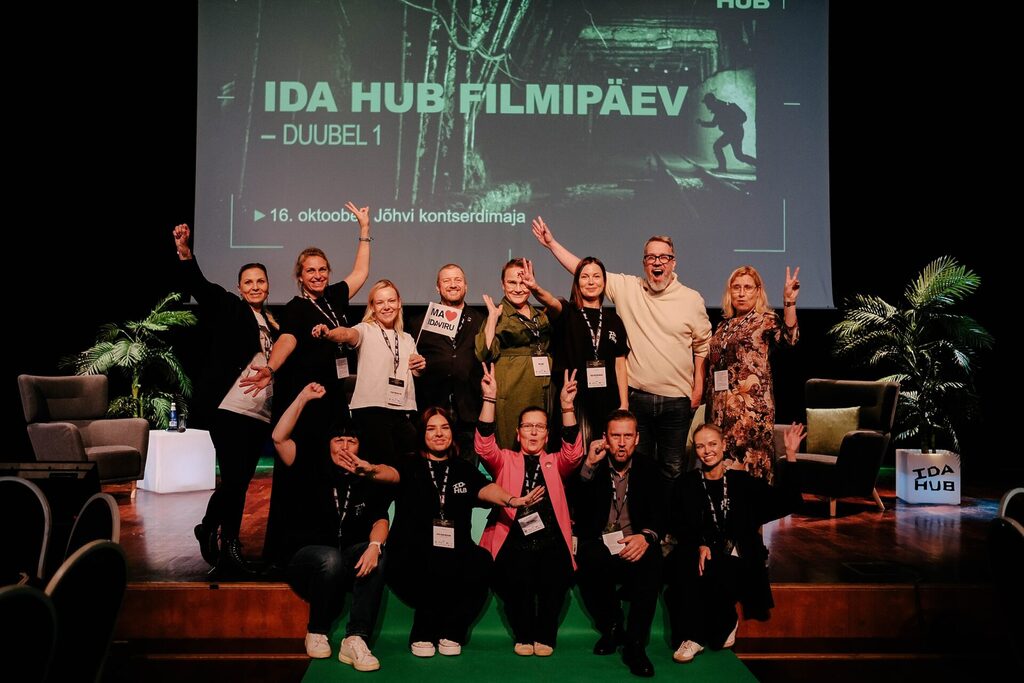23.10.2024
Crossroads in Jõhvi: A meeting place for film and startups
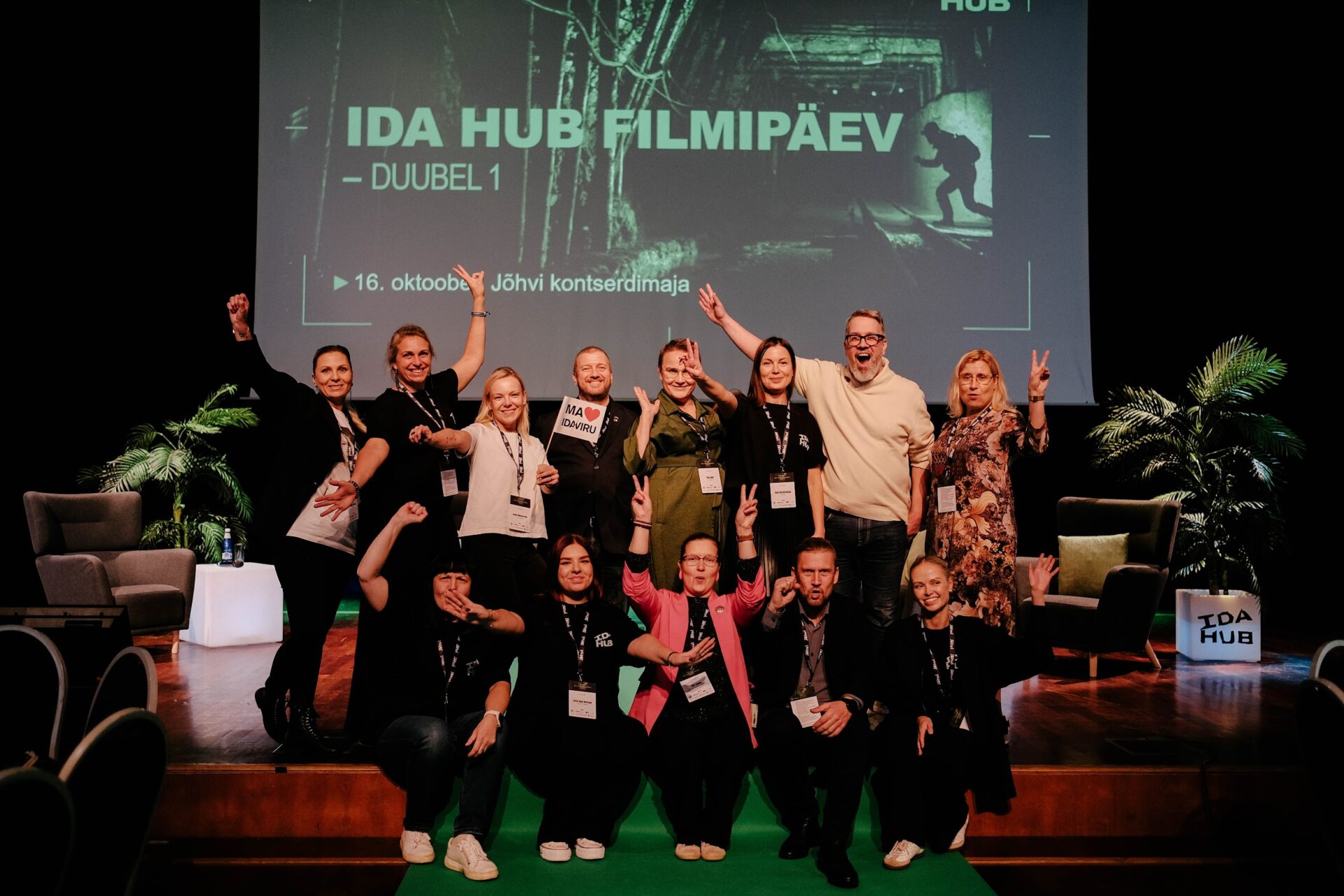
On October 16, the first IDA Hub Film Day – TAKE 1 – took place at the Jõhvi Concert Hall. The event was initiated by the Jõhvi Municipal Government and organized by the Viru Film Fund in collaboration with the Ida-Viru Investment Agency and Tehnopol Science and Business Park. The day focused on developments and future visions for Ida-Virumaa and the film industry in the coming years.
The event was opened by the Mayor of Jõhvi, Maris Toomel, who had prepared a humorous video clip. Teet Kuusmik, board member of the Ida-Viru Investment Agency (IVIA), presented the establishment of the IDA Hub incubator infrastructure along with a studio complex. Olga Kurdovskaja from Tehnopol and Britta Merirand from the Ida-Viru Entrepreneurship Center spoke about the business growth programs offered by IDA Hub and the support services available for filmmakers and the region. The day also included panel discussions and a world café. The event concluded with the Kaljo Kiisk’s scholarship gala.
Does the film industry need an innovation revolution?
Estonia’s film industry faces new challenges but also opportunities that could elevate the sector to a new level, participants noted during the panel organized by Tehnopol titled Does the film industry need an innovation revolution?. The discussion focused on how this turning point for the film industry could help position Ida-Virumaa as a hub in the film world and what steps are needed to bring Estonian films to international audiences.
“The Estonian startup ecosystem started with Skype, and now deep tech startups are the hot topic. Why couldn’t Estonian film or film technology startups be the next wave? Ida-Virumaa offers great opportunities. How can we attract more smart, innovative, and passionate film entrepreneurs to Estonia, so money flows into the film industry?” investor Heidi Kakko asked.
Kaspar Kallas, who has worked in the film industry for over a decade and is one of the co-founders of Digital Sputnik, a company that develops lighting solutions for the film industry, emphasized that while rapid technological advancements offer new possibilities for filmmakers, they cannot replace the experience and human vision of creators. “Humans are emotional beings, and that’s essential in filmmaking,” Kallas pointed out.
Kallas also noted that Ida-Virumaa has the potential to position itself well in the global market, especially amidst the current turmoil in Hollywood, where new solutions are being sought. “We have the opportunity to offer ideas,” he said.
The discussion also highlighted the organization of international events to spark growth for startups in the film sector and the potential to attract international teams to Jõhvi’s accelerator. “Ida-Virumaa could find international partners who would invite startups to their events,” suggested Maarit Mäeveer-Eller, founder of Votemo.
In conclusion, Estonia’s film industry holds great potential, but it needs innovation, international cooperation, and a strong leader to bring the Estonian film brand to the global stage. “Estonian films have reached international nominations, but more promotion is needed,” investor Heidi Kakko noted.
Edith Sepp, Director of the Estonian Film Institute, pointed out that Estonian films are well received abroad, but more international cooperation and support are necessary. “Political will is crucial to take Estonia’s film industry to the next level,” Sepp said.
Where does the money come from?
European countries widely support their film industries, and the sector sees the government’s role in film financing as central. The discussion drew parallels between films and startups as investment opportunities. Successful films generate most of their revenue within the first year, and while there are fewer unicorns in the local film world, failures are also less common than among startups.
Edith Sepp acknowledged that investing in films is complicated because each film is different. “A popular film brings the money back, but more artistic films don’t always do that,” she said.
“The biggest concern is that investors don’t know how to assess whether the money will be returned. If there’s a portfolio of different productions, the risk can be mitigated. The principle of venture capital funds is to create and manage a portfolio,” explained Heidi Kakko.
A studio that produces 10 or 20 films would function much like an investment fund in the startup world.
Investing in films is similar to investing in startups – both require risk mitigation and portfolio creation. It’s crucial to select the right projects and creators who can bring their ideas to life.
“The key is the creator you’re investing in. Hollywood bets on creators, and venture capital bets on startups. The most successful creators and startups are the proof,” said Kakko.
To support successful creators and foster the exchange of know-how between the film and startup worlds, IDA Hub launched its activities this year.
The Film and Multimedia Accelerator at Tehnopol’s Startup Incubator is funded by the European Union.
